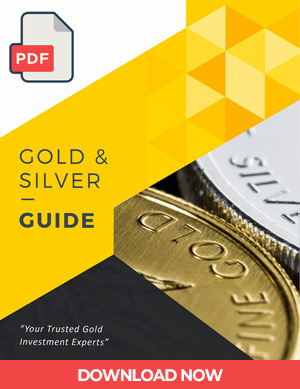Washington D.C. is still a prime breeding ground for bad ideas
![]() Bullion.Directory precious metals analysis 31 March, 2025
Bullion.Directory precious metals analysis 31 March, 2025
By Clint Siegner
Director of Money Metals Exchange
In fairness, we should first mention we are encouraged by the growing acceptance by a handful of policymakers of alternative, non-government forms of currency.
U.S. Senator Cynthia Lummis of Wyoming began advocating for swapping U.S. gold for Bitcoin shortly after Donald Trump won the election last fall. It was music to the ears for a number of young crypto enthusiasts who, in their overwhelming zeal, have attempted to position Bitcoin as a superior alternative to gold.
Bitcoin and gold may share some of the honest money fanbase, but that is about as far as any similarities go. One is tangible and time tested. The other is entirely digital and relatively brand new. Both assets have their own strengths and weaknesses.
However, it’s a little bizarre to see people pitching Bitcoin as a replacement for gold, and it’s a little suspicious.
Why so much effort to convince gold investors that Bitcoin is better and divide the honest money crowd?
Shouldn’t there instead be a focus on bringing new people into the movement – the overwhelming majority of people who hold neither gold nor Bitcoin?
Bitcoin was designed as an alternative to fiat money, not gold. The creator of the project, known by the pseudonym Satoshi Nakamoto, wanted a currency which is used by everyone and outside the control of Wall Street banks, central banks, and governments.
Instead of pressing for Satoshi’s vision, people like Senator Lummis want to see the federal government simply swap gold for Bitcoin. But she ought to consider whether making it a “reserve” asset is of any benefit whatsoever to the cryptocurrency or for her constituents.
Start with a look at history.
Gold is the original reserve asset.
The reason the U.S. government has more than 8,000 tonnes is that the dollar was once redeemable in gold. The Treasury therefore needed a stockpile, or reserve. Then government abandoned the gold standard and defaulted on the promise to redeem.
There is little reason to believe any reserve asset, including BTC, will be used for public benefit.
Pretty much nobody is advocating for dollars to be redeemable in Bitcoin, which makes the argument for holding it as a reserve somewhat disingenuous.
Proponents simply believe the token will outperform gold as an investment. They want to see the Treasury dump thousands of tonnes of gold and place a massive speculative bet in crypto markets.
Setting aside the dangers of such speculation, we wonder exactly what the “Bitcoin reserve” crowd expects will happen if Bitcoin turns out to be a home run investment for the Treasury.
Will they simply feel better when the federal government has trillions of dollars worth of Bitcoin on the books – or are they expecting officials to do something with it?
Maybe they imagine officials will do something positive, like use the massive trove of Bitcoin to pay off federal debt. If so, they probably won’t be pleased when the Treasury floods the market with BTC in order to raise cash so they can do so.
Senator Lummis suggests a Bitcoin reserve might help “financial innovation” and promote “economic security.” She doesn’t provide details, so we’re supposed to take that on faith.
Politicians prefer fiat money and expanded government control. Theories which incorporate this history will be far more plausible than whatever the Bitcoin reserve proponents are hoping for.
We’ll offer one such theory, by way of example. Officials are already discussing the next evolution in fiat money — a Central Bank Digital Currency (CBDC). CBDC tokens can be created without limit, like fiat money, but provide transaction tracking and control.
Perhaps Bitcoin (and maybe the gold reserves too) will be used in a “basket” of assets to add legitimacy and appeal to the CBDC officials are planning.
Suffice it to say that Bitcoiners should take a lesson many goldbugs learned long ago. It’s probably not a good idea for governments to get involved in any system of money.
Clint Siegner


Clint Siegner is a Director at Money Metals Exchange, a precious metals dealer recently named “Best in the USA” by an independent global ratings group.
A graduate of Linfield College in Oregon, Siegner puts his experience in business management along with his passion for personal liberty, limited government, and honest money into the development of Money Metals’ brand and reach. This includes writing extensively on the bullion markets and their intersection with policy and world affairs.
This article was originally published here












 Material provided on the Bullion.Directory website is strictly for informational purposes only. The content is developed from sources believed to be providing accurate information. No information on this website is intended as investment, tax or legal advice and must not be relied upon as such. Please consult legal or tax professionals for specific information regarding your individual situation. Precious metals carry risk and investors requiring advice should always consult a properly qualified advisor. Bullion.Directory, it's staff or affiliates do not accept any liability for loss, damages, or loss of profit resulting from readers investment decisions.
Material provided on the Bullion.Directory website is strictly for informational purposes only. The content is developed from sources believed to be providing accurate information. No information on this website is intended as investment, tax or legal advice and must not be relied upon as such. Please consult legal or tax professionals for specific information regarding your individual situation. Precious metals carry risk and investors requiring advice should always consult a properly qualified advisor. Bullion.Directory, it's staff or affiliates do not accept any liability for loss, damages, or loss of profit resulting from readers investment decisions.

Leave a Reply